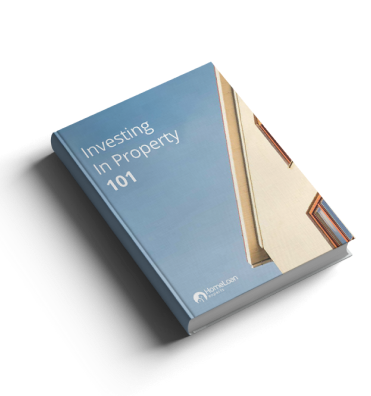Property investment is a tried-and-tested path to building wealth, but even seasoned investors can fall into common traps that hinder their success. From failing to establish a clear investment strategy to making emotion-driven decisions, these missteps can cost time, money, and opportunities.
This guide explores the most frequent mistakes property investors make, such as relying solely on the lowest interest rates, neglecting property maintenance, or taking advice from real-estate agents without proper due diligence. It also highlights actionable solutions to sidestep these pitfalls, like targeting newer properties for tax benefits, maintaining financial buffers, and seeking expert advice.
Avoiding these errors safeguards your investment and sets you on a solid path to achieving your financial goals. Whether you’re starting out or expanding your portfolio, mastering these insights is key to smart property investing.
1. Not Having An Investment Strategy
Investment is a long race. Without proper investment strategies in place, you can rush into decisions you may regret later. Many first-time investors jump into investing for the instant benefits and realise later that they could have taken a better opportunity elsewhere.
Property Investment Guide 101
Learn the ins & outs of investing in properties from an experienced property investor and founder of Home Loan Experts, Otto Dargan.

Solution
The best investment strategy varies with the individual. Just because doing renovations worked for your neighbour who has worked in construction for 20 years doesn’t mean it’ll be the same for you. Set goals you want to achieve, then find out which investment strategy suits you best, create goals you want to achieve and stick to it.
2. Waiting For The Perfect Property
Caution is a good trait to have when entering the real-estate market, but waiting too long can set you back more than you think. If the property market is red hot, each day you wait can cost you hundreds of dollars. Some investors wait to save a deposit of 20% to avoid paying Lender’s Mortgage Insurance but if property prices are rising quickly enough, the increase in price might cost you more than LMI. Waiting may not be worth it as the rise in property prices could be much more expensive than the LMI fees.
Solution
Suppose you already have a sound investment strategy. In that case, it is often better to dive into the market instead of waiting around. Doing your homework is necessary. Learning is necessary. However, it’s not possible to learn everything before you start your property investment journey. To see whether you should buy now or save for a deposit, you can use our buy now or save more calculator. If you’re ready to make your first investment, give us a call on 1300 889 743 or fill in our free assessment form, and one of our investment mortgage brokers will guide you through each step forward.
3. Chasing The Lowest Interest Rate
Many first investors search for chase only the lowest interest rate when looking for an investment loan. But, a low interest rate doesn’t guarantee that you’re getting the cheapest loan available. Other factors are important too. Some banks limit extra repayments on your loan. You might face break fees if you want to get out of a fixed rate before the term ends with some loans, or you may be unable to redraw additional payments.
Solution
Consider all the details of the investment loan and not just the interest rate. Choosing the most suitable loan for you instead of the cheapest will be profitable in the long run. You can give us a call on 1300 889 743 or fill in our free assessment form, and we can provide you with the most suitable options to choose from.
4. Making Emotion-driven Investment Decisions
Emotions can become a hindrance when it comes to determining your property investment strategies. We have seen people buying property for reasons like having it close to their home or because they liked the colour. It is normal to become at least somewhat emotionally invested in a property you want to buy; however, purchasing a house is too big a decision to let your emotions hold sway.
Solution
Rely on data rather than emotion. There is plenty of information readily available that can help you make an informed decision about your investment. You can analyse a property by looking at the historical growth in property values in an area or its vacancy rates. Other indicators include local employment opportunities or available public transport. You can get a free suburb report from property websites such as realestate.com.au and domain.com.au. A suburb report will include the area’s median sale price and the value of recent sales, plus demographic profiles.
Once you have narrowed your search down to one property, we can help you order a free upfront valuation before you apply for a home loan. Give us a call on 1300 889 743 or fill in our free assessment form to get your free upfront valuation report.
5. Buying Older Properties
Owning a fancy villa that looks like it’s from generations gone by sounds amazing. However, as an investor, you need to remember that older properties generally command a higher price than newer ones, mostly because of their location. Buying an older property also means you can’t claim depreciation as a tax deduction. That benefit is available only on properties less than 40 years old.
Solution
Target new properties to gain these benefits compared with older properties:
- Lower vacancy rates
- Lower maintenance costs
- Tax benefits for depreciation
- Higher rental income because of modern amenities
- Cash grants and stamp duty discounts
6. Taking Advice From Real-Estate Agents
Not all real-estate agents are looking to rip you off. However, their main agenda is always to sell you one of the properties they’re showing you. Real-estate agents may show you only the aspects of a property that you will like.
Solution
An agent may sound convincing but do not agree to buy a property without doing your homework. Ask multiple real-estate agents instead of believing one, and consult investment experts if necessary. You also need to arrange your own independent inspections of the property for damage and pests.
7. Borrowing To Your Limit
When taking out an investment loan, make sure you can afford to make the loan repayments without the rent. There may be unforeseen costs, such as new strata fees or plumbing repairs. You need to be able to cover these uncertainties.
Solution
Ideally, put aside 3-6 months of repayments so that you can take your time and select a good tenant. If you’re borrowing for a property that needs renovations, then adjust your finances accordingly. Calculate how much you should borrow before taking out the loan.
8. Landlord Mistakes
Some investors stop thinking about the property after buying it and do not keep up with the maintenance. Ignoring the issues in your property can make it unattractive to potential renters. Another big landlord mistake is not keeping up with the rental market. If you don’t increase your rent gradually, then increase it suddenly, it will strain your relationship with your renters. A property with a bad reputation will either sit vacant or go for much lower rent than the market average. It could become an unwanted burden on your investment loan repayments.
Solution
Maintain your property and fix any basic problems with it right away. Communicate with your renters and make sure they are happy to be there. That way, even when they have to move, they will recommend someone for you, which will ensure your property doesn’t stay vacant for too long.
9. Cutting Out The Experts
Let’s face it. We can’t do everything by ourselves. For example, managing property takes a lot of time. A property manager could do it for you, relieving you of all of that stress for just a few hundred dollars a month. And when you’re ready to buy your property, you could miss out on an excellent deal on your mortgage if you don’t ask a mortgage broker.
Solution
Take help where necessary. Experts are there to ease your stress during this long investment journey. If you need help from an expert mortgage broker specialising in investment loans, please give Home Loan Experts a call on 1300 889 743 or fill in our free assessment form.
